#VolkswagenGroup
VW CEO Suggests Fuel Cell Tech Isn't the Answer, No Duh
Volkswagen Group CEO Herbert Diess was bashing hydrogen-powered vehicles on Twitter this week in an attempt to convince those vying for Germany’s chancellorship not to embrace the technology. With Angela Merkel stating that she’ll not seek a fifth term, the country is open for new leadership and VW wouldn’t want them to take a liking to hydrogen power when it has placed all of its eggs into the electric vehicle basket.
“The hydrogen car has been proven NOT to be the climate solution,” Diess wrote on Twitter in German. “In transportation, electrification has prevailed. Sham debates are a waste of time. Please listen to the science!”
Lamborgreeni: Italian Automaker to Become Electric Only by 2024
Lamborghini CEO Stephan Winkelmann announced on Tuesday that the Italo-German supercar brand will officially be transitioning to electric vehicles, with the last traditional internal combustion model coming before 2024.
But these kinds of proclamations rarely adhere to observable reality, otherwise, we’d all be riding around in flying cars that can navigate autonomously. What Lamborghini is really promising is an intent to abandon models that rely exclusively on combustible fuels while it builds a bunch of them in the interim. It’s kind of like saying you’re going on a diet next month and gorging yourself on chocolate cake as you brag to your friends about how healthy you’re about to become.
QOTD: Is the VW Taos a Worthy Successor to the Mk7 Golf?
Volkswagen has announced pricing for the 2022 Taos subcompact crossover, dialing things in at $24,190 for the base, front-wheel-drive version. The sum syncs up perfectly with the Golf hatchback the vehicle will effectively be replacing on the North American market (GTI excluded) and leaves us with some nagging questions about VW’s overall plan. Volkswagen is effectively killing off the Golf so Taos can have an uninterrupted moment under the spotlight, but it’s making the brand lineup look conspicuously redundant.
With Taos models priced so close to the Tiguan, there’s going to be loads of overlap on everything that isn’t the base model S trim. The larger crossover starts at $26,440 (including destination) and automatically comes with more interior volume and a beefier powertrain, though neither vehicle could be considered quick.
Volkswagen ID.6 Readied for China, Perhaps North America
Unveiled at the Shanghai auto show, Volkswagen’s ID.6 is reportedly ready for the Chinese market as the manufacture strives to present itself as an EV firm. Originally known as the spacious ID Roomzz concept, the three-row crossover will be the VW’s largest product on the Asian market and come in two distinct flavors — each the offspring of separate joint ventures required by the Chinese government.
The ID.6 Crozz (shown in orange) will be produced at the FAW-Volkswagen facility in Foshan while SAIC Volkswagen will be responsible for manufacturing the ID.6 X (purple) at its plant in Anting, near Shanghai. Regardless of which model customers go with Volkswagen is promising a vehicle “tailored specifically to the needs and wishes of Chinese customers in terms of space, functionality, design and, in particular, user experience.” While we may eventually see a version of the ID.6 coming to North America, China is Volkswagen’s largest individual market and ranks higher in the manufacturer’s list of priorities.
Volkswagen Reportedly Buying Carbon Credits From Tesla China
One of Volkswagen’s joint ventures in China has reportedly offered to purchase regulatory credits from Tesla in order to adhere to the regional environmental ascendancy. While VW may be doing everything in its power to swap over to an electric-vehicle manufacturer, it’s apparently falling short of government dictums.
FAW-Volkswagen — which shipped a little over 2 million automobiles in Asia last year — happened to be one of the biggest polluters of 2020 according to China’s Ministry of Industry and Information Technology. As it turns out, selling internal combustion vehicles consumers actually want to purchase in large quantities has some kind of environmental cost. Fortunately, it’s one regulators think can be solved by buying green credits from rivals who do all of their polluting during the initial assembly process and launder any future emissions through the national energy grid.
VW Microbus Successor Scheduled for 2024 American Launch
Remember the all-electric Microbus successor Volkswagen was chirping about a few years ago? If you don’t, you can be forgiven. Despite the model receiving loads of press after the automaker acknowledged it would indeed be coming to North America, reports on its progress started becoming incredibly rare by 2019. With #VanLife trending inside the United States, VW would be an absolute fool not to start offering something trendy to fit the bill and the horribly named I.D. Buzz seems an ideal candidate. However, it feels as though the company has forgotten our market while it preps the model for Europe.
There’s reportedly no reason to worry. Volkswagen has confirmed that the model will be showing up on our shores in 2023 after it’s made a splash across the pond. But there will be a few stipulations.
Audi Boss Paints Gloomy Picture for Small Automobiles
While Europe often appears as a safe haven for punchy subcompacts, the reality is that the continent’s biggest sellers happen to be reasonably sized automobiles equipped with a tepid engine option. The Volkswagen Golf, Toyota Corolla, and Škoda Octavia (especially if you happen to travel through any former satellite states of the Soviet Union) are absolutely everywhere. Europe also has a strong taste for many of the compact crossovers that are popular here in North America, giving subcompacts an increasingly small share of the overall market. And it’s projected to get smaller (globally) under the existing European regulations.
Pint-sized economy vehicles aren’t exactly profit leaders for automakers and their margins are only going to become slimmer. The EU is now reaching a point where building them won’t make sense, as tailpipe regulations will eventually force some amount of electrification. This will jack up their price to a point where the kind of people that might have been considering them will probably shop used. But don’t take our word for it; Audi CEO Markus Duesmann recently said this is probably what will kill the A1.
VW Ends Racing Operations, Sends Team to Build EVs
Do you ever get the feeling that everything even remotely fun and interesting is being thrown on the pyre of progress so we can collectively live safer, duller lives? Case in point, Volkswagen is dismantling its racing operations so the 169 people it employed can be reincorporated. Responsible for the all-electric Volkswagen ID.R racer that showcased some of the performance advantages of EVs to attentive audiences around the globe, the team will now be responsible for building ID models intended for mass consumption.
While we’re sure spreading their engineering prowess around will benefit VW’s core brand, it’s unfortunate that it came at the expense of the brand’s motorsport activities — modest as they might have been in 2020.
Volkswagen CEO Says Biden Win Better Suits Corporate Goals
As the U.S. election devolves into deciding which political party committed the most fraud, Volkswagen CEO Herbert Diess said a victory by Democrat Joe Biden would be the ideal outcome for any German automakers seeking to mass-produce electric cars. Hardly surprising, considering the Biden-Harris campaign website says it would regulate the dickens out of fossil fuels, moving aggressively toward alternative energy sources and electrification while pressing other nations to do the same.
“A Democratic program probably would be more aligned with our worldwide strategy, which is really to fight climate change, to become electric,” the CEO told Bloomberg on Thursday.
Volkswagen Recalling 218,000 Jettas Over Fuel Leak Risk
With so many automotive issues being “solved” with a software update and a wink of late, its nice to see a recall that harks back to the days where someone forgot to tighten a few bolts or had a delivery truck pull up to the factory with sub-optimal fasteners. According to documents filed with the National Highway Traffic Safety Administration, Volkswagen has found itself in just such a pickle and will need to recall 218,192 Jetta sedans from the 2016-2018 model years.
The problem? Improperly torqued fuel rail bolts. The solution? Obvious.
Audi Confirms RS Variant for E-Tron GT Sports EV, Teases Soundtrack
With Porsche having secured itself an all-electric vehicle, the laws of trickle-down manufacturing dictate that Audi is the next on Volkswagen Group’s docket for performance-focused electrification. Using the J1 performance platform that underpins Porsche’s Taycan, the Ingolstadt-based automaker has reported that its own E-Tron GT is nearing completion — assuring us that it’ll will meet the bar in terms of “quality and progressiveness” in a handful of announcements on Thursday.
Probably the most important of these was that Audi would be ready to commence production at the end of this year at Böllinger Höfe, near Neckarsulm, alongside the R8. However the company leaked a few additional details, including that the E-Tron (which the brand stylizes in all lower-case letters, bleh) will come in an RS variant.
Report: Volkswagen to Begin Distancing From Lamborghini
More evidence has surfaced that Volkswagen Group may be on the cusp of relieving itself of some of its less-profitable subsidiaries. Following news of a November board meeting that would help decide the fate of numerous ultra-premium brands, rumor has it that VW is currently working out ways to give Lamborghini more autonomy and open the door for supply deals that could foreshadow it being listed on the stock market.
Additionally, the automaker’s supervisory board has already reportedly met to discuss the future of Bentley, Bugatti, Lamborghini, and its Ducati motorcycle arm. Discussions were said to include how to electrify the more sporting nameplates via industrial partnerships and procuring investment dollars. Some of these deals are already in the early stages, according to Reuters, with a possible IPO for the Italian supercar brand alleged to be moving forward at the time of this writing.
Sell Off? Volkswagen Group Rethinks Its Position on Supercars
Volkswagen Group, the largest automotive manufacturer in the world, is reexamining its relationship with high-performance subsidiaries as it continues pouring money into electrification. Burned by a diesel emissions scandal of its own making half a decade ago, VW leadership now views electric cars as the only path forward — especially in regard to its more mainstream brands. While they aren’t getting identical treatments, VW, Audi, Seat, and Skoda are all presumed to be adding EVs to their production lines over the next few years.
Porsche’s long-term strategy also seems heavily dependent on battery power, but the road ahead is much less clear for ultra-premium brands like Lamborghini and Bugatti. With volumes and lineups order of magnitudes smaller than the core brands, Volkswagen would be incurring a gigantic expense to develop upper-echelon performance EVs that might not appeal to their existing fans. The same goes for upscale motorcycle brand Ducati as the two-wheeled world has become divided on electric and gas-powered bikes. Volkswagen’s management board and directors have decided the situation calls for an all-hands meeting in November to decide what should be done and how to remain financially prudent in a period of economic strife.
Rimac Planning to Buy Bugatti?
Croatian supercar firm Rimac Automobili is reportedly in the process of acquiring Bugatti from Volkswagen. While rumors had been swirling that VW might offload a few of its brands in a bid to focus on electrification and emissions compliance, this is is the first time we’ve heard credible rumblings about real action being taken.
Considering the space Rimac occupies, adding the formerly French Bugatti brand also makes some amount of sense. We’d be a lot more skeptical if founder Mate Rimac was alleged to be making a move on SEAT because he suddenly found a passion for designing economy cars. But the prospective tie-up is more complicated than it seems at first blush. Volkswagen Group’s Porsche actually owns a 15-percent stake in Rimac so it can tap into some of its sweetest technical equipment for the purpose of building EVs.
ID.4 Reservations Begin Next Month for $100; Volkswagen Streamlines Shopping Experience
While North America isn’t receiving Volkswagen’s ID.3, it might have been for the best. The car launched with software glitches that made certain tech functions inoperable and probably wasn’t suited for our market, anyway, according to the manufacturer. But the ID.4 (formerly ID Crozz) crossover is coming here, and promises to deliver a pleasant electric-driving experience and a range of up to 310 miles — assuming you bought the right package and are familiar with the European WLTP cycle.
Volkswagen also wants to use the model to test its new customer experience initiative, which allows shoppers to make reservations online. While the pandemic has encouraged the industry to do more of its business over the internet, the reservation trend was becoming popular ever since carmakers learned that such fees for in-demand models could preemptively line their pockets with cash.
Originally, this was done to ensure customers were serious about buying models produced in limited supplies, or as a way to help startups fund their production efforts ahead of time. It’s now become fairly common, as everyone seems to understand the scam program. In a virtual press conference Thursday, Volkswagen said it would allow parties to reserve the ID.4 next month for a $100 deposit. Duncan Movassaghi, vice president of VW Sales and Marketing, claimed it was the best solution for dealers — and was in line with how people have to live their lives during COVID-19.





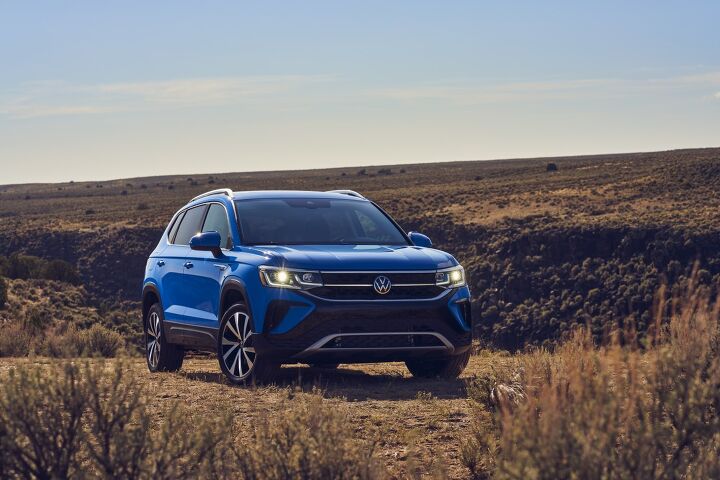
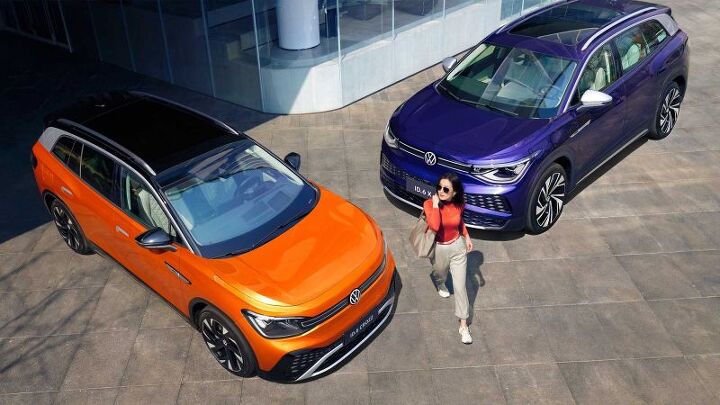
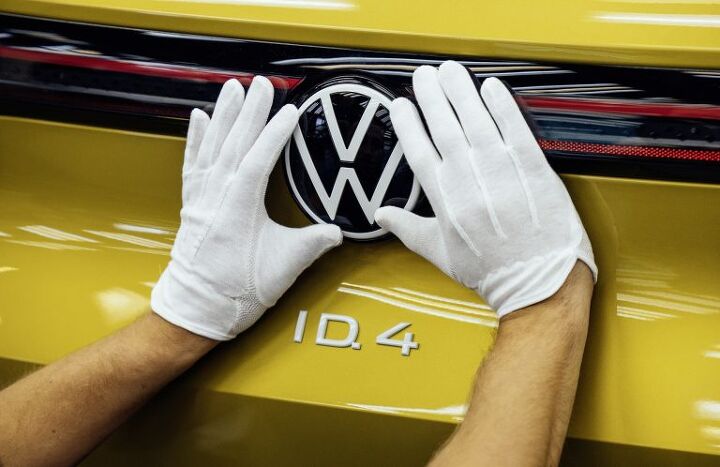
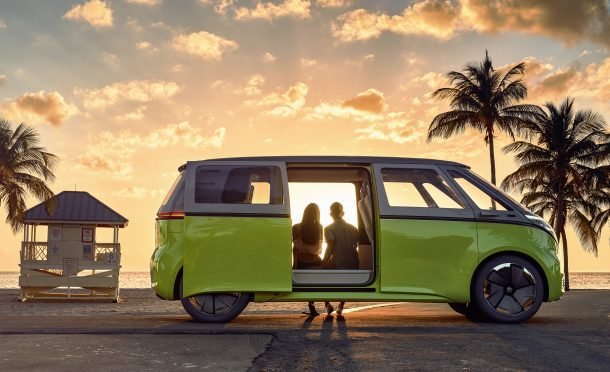


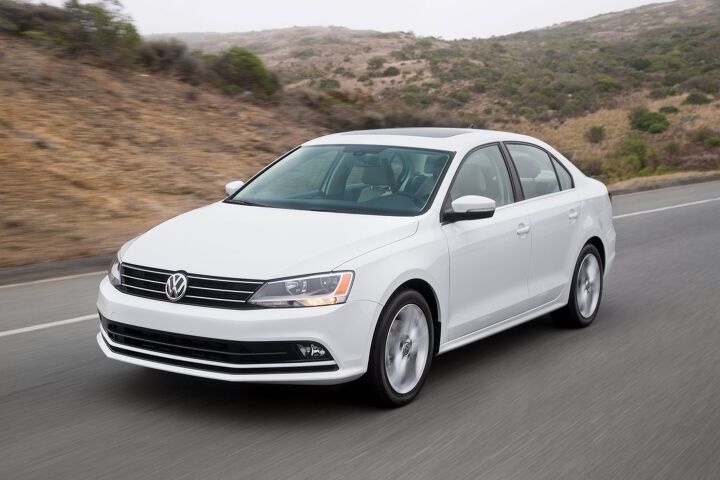
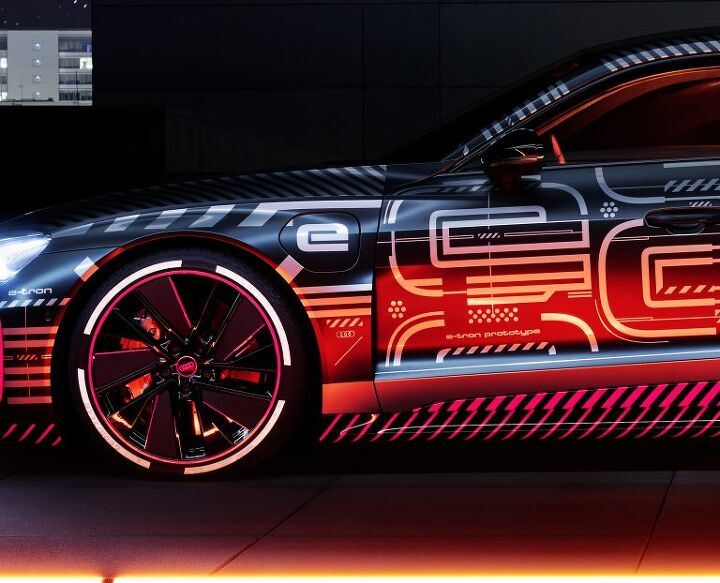


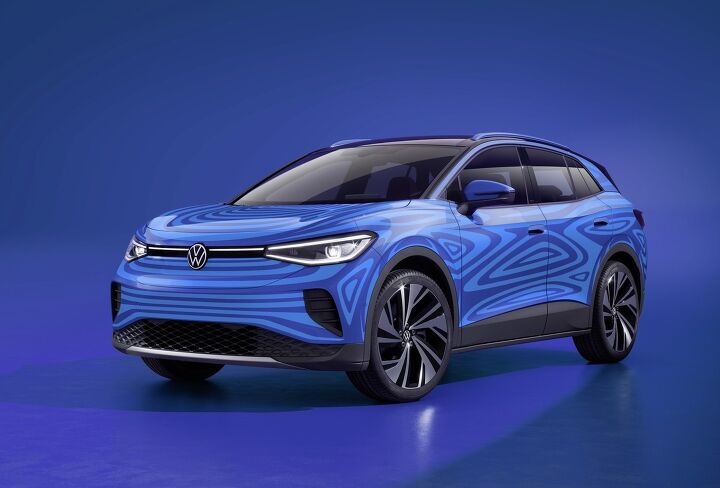












Recent Comments